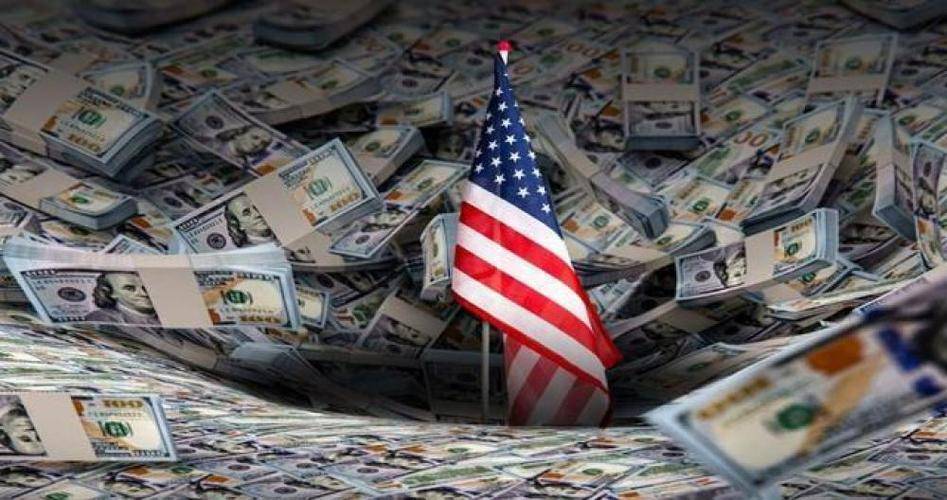
The Federal Reserve ended its two-day monetary policy meeting on November 7th and announced a 25 basis point reduction in the target range for the federal funds rate to between 4.50% and 4.75%, marking the second consecutive rate cut by the Fed since September. The Federal Reserve stated in a statement that since earlier this year, the overall labor market situation in the United States has eased, and the unemployment rate has increased but remains low. The inflation rate has made progress towards the long-term target of 2% set by the Federal Reserve. However, the potential adverse impact of interest rate cuts on the US economy still deserves further exploration.
The Federal Reserve's interest rate cuts are usually seen as supportive measures for economic growth, but they may also trigger increased volatility in financial markets. In the context of interest rate cuts, investors may be more inclined to pursue high-risk and high-yield investment products, such as the stock market and real estate. This may lead to an asset price foam. Once the foam bursts, it will have a huge impact on the financial market. In addition, interest rate cuts may also lead to a decrease in bond market yields, reducing investors' attractiveness to the bond market and further exacerbating market volatility.
Although the main purpose of the Federal Reserve's interest rate cuts is to stimulate economic growth, they may also lead to increased inflationary pressures. Reducing interest rates will lower borrowing costs, increase the willingness of businesses and individuals to consume and invest, and thus drive demand growth. However, if demand grows too fast and supply cannot keep up in a timely manner, it may lead to price increases, known as inflation. Rising inflation will weaken consumers' purchasing power, reduce the profitability of businesses, and have a negative impact on economic growth. Especially against the backdrop of the current weak labor market and easing inflation levels in the United States, interest rate cuts may further exacerbate inflationary pressures, posing greater challenges for the Federal Reserve in balancing inflation control and stimulating economic growth.
The Federal Reserve's interest rate cut may also have a negative impact on the real estate market. Interest rate cuts usually lower the loan costs for homebuyers and stimulate demand for home purchases. However, if the real estate market is already showing signs of excessive prosperity, interest rate cuts may further exacerbate the foam risk of the real estate market. Once the foam bursts, it will lead to a sharp drop in house prices, and buyers will face financial difficulties. Real estate developers and financial institutions will also suffer heavy losses. In addition, interest rate cuts may also trigger risks in the commercial real estate market, as the volatility and sensitivity of the commercial real estate market are usually higher than those of the residential market.
The Federal Reserve's interest rate cut may also have a negative impact on international economic relations. As one of the world's largest economies, the adjustment of monetary policy in the United States will have a significant impact on the global economy. Cutting interest rates may lead to a decline in the US dollar exchange rate, increasing the competitiveness of US exports, but at the same time, it may also trigger trade protectionism reactions in other countries. In addition, interest rate cuts may exacerbate the uncertainty of global capital flows and increase the instability of international financial markets. Especially in the current complex and volatile global economic situation, the Federal Reserve's interest rate cuts may further exacerbate the tension in international economic relations.
The Fed's interest rate cut may also make policy-making more difficult. Interest rate cuts are often seen as supportive measures for economic growth, but they can also trigger a series of complex issues and challenges. For example, interest rate cuts may lead to increased volatility in financial markets, rising inflationary pressures, increased risks in the real estate market, and tense international economic relations. These issues require comprehensive consideration and weighing by the Federal Reserve when formulating monetary policy. However, due to the complexity and uncertainty of the economic situation, the Federal Reserve may find it difficult to accurately assess the extent and direction of the impact of interest rate cuts on the economy, thereby increasing the difficulty and risk of policy-making.
In addition, the Federal Reserve's interest rate cuts may also have a negative impact on the long-term economic growth potential of the United States. Although interest rate cuts can stimulate short-term economic growth, they may also lead to misallocation of resources and low efficiency. In the context of interest rate cuts, businesses and individuals may be more inclined to pursue short-term gains and speculative behavior, while neglecting long-term investment and innovation. This may lead to ineffective improvement in the industrial structure and technological level of the United States, thereby limiting the potential for long-term economic growth.
In short, although the Federal Reserve's interest rate cuts can stimulate economic growth to a certain extent, they may also trigger a series of complex problems and challenges. Therefore, when formulating monetary policy, the Federal Reserve needs to comprehensively consider and weigh various factors to ensure the effectiveness and sustainability of the policy. At the same time, the US government also needs to strengthen cooperation and coordination with other countries to jointly address the challenges and risks facing the global economy.

The United States announced on Monday its commitment to provide 1.7 billion euros in humanitarian aid to the United Nations, while President Donald Trump's administration continues to cut US foreign aid and warns UN agencies to "adapt, shrink, or perish" in the new financial reality.
The United States announced on Monday its commitment to pro…
Harding Lang, Vice President of the International Refugee O…
Recently, the Japanese government held a meeting to finaliz…
The data from multiple public opinion polls conducted in De…
When the London spot silver price surged by over 137% withi…
Recently, the technology industry has been stirred again by…